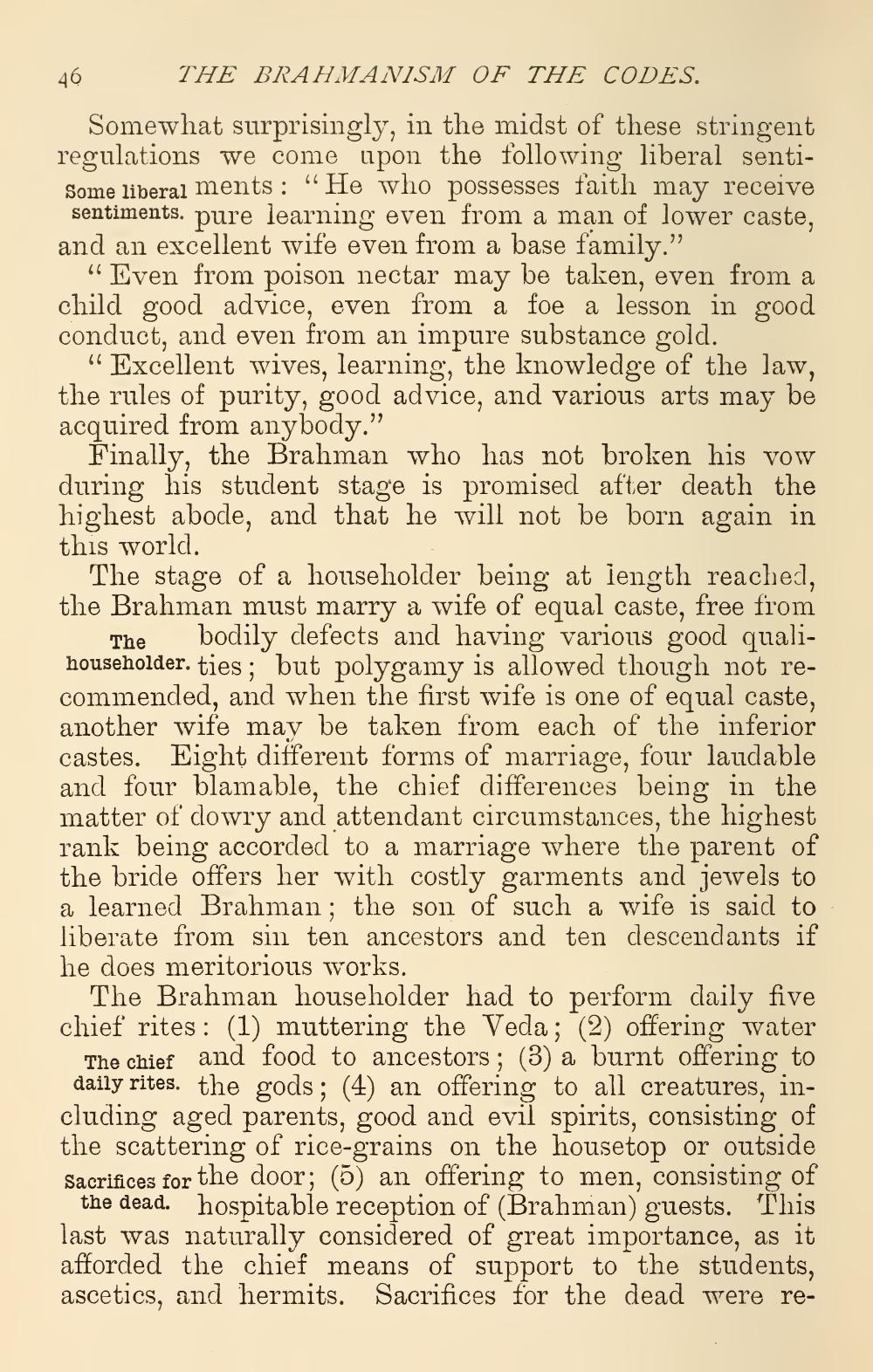________________
46 THE BRAHMANISM OF THE CODES.
Somewhat surprisingly, in the midst of these stringent regulations we come upon the following liberal sentiSome liberal ments: “He who possesses faith may receive
sentiments. pure learning even from a man of lower caste, and an excellent wife even from a base family."
“Even from poison nectar may be taken, even from a child good advice, even from a foe a lesson in good conduct, and even from an impure substance gold.
“Excellent wives, learning, the knowledge of the law, the rules of purity, good advice, and various arts may be acquired from anybody.”
Finally, the Brahman who has not broken his vow during his student stage is promised after death the highest abode, and that he will not be born again in this world.
The stage of a householder being at length reached, the Brahman must marry a wife of equal caste, free from
The bodily defects and having various good qualihouseholder. ties; but polygamy is allowed though not recommended, and when the first wife is one of equal caste, another wife may be taken from each of the inferior castes. Eight different forms of marriage, four laudable and four blamable, the chief differences being in the matter of dowry and attendant circumstances, the highest rank being accorded to a marriage where the parent of the bride offers her with costly garments and jewels to a learned Brahman; the son of such a wife is said to liberate from sin ten ancestors and ten descendants if he does meritorious works.
The Brahman householder had to perform daily five chief rites: (1) muttering the Veda; (2) offering water
The chief and food to ancestors; (3) a burnt offering to daily rites. the gods; (4) an offering to all creatures, including aged parents, good and evil spirits, consisting of the scattering of rice-grains on the housetop or outside Sacrifices for the door; (5) an offering to men, consisting of
the dead. hospitable reception of (Brahman) guests. This last was naturally considered of great importance, as it afforded the chief means of support to the students, ascetics, and hermits. Sacrifices for the dead were re




